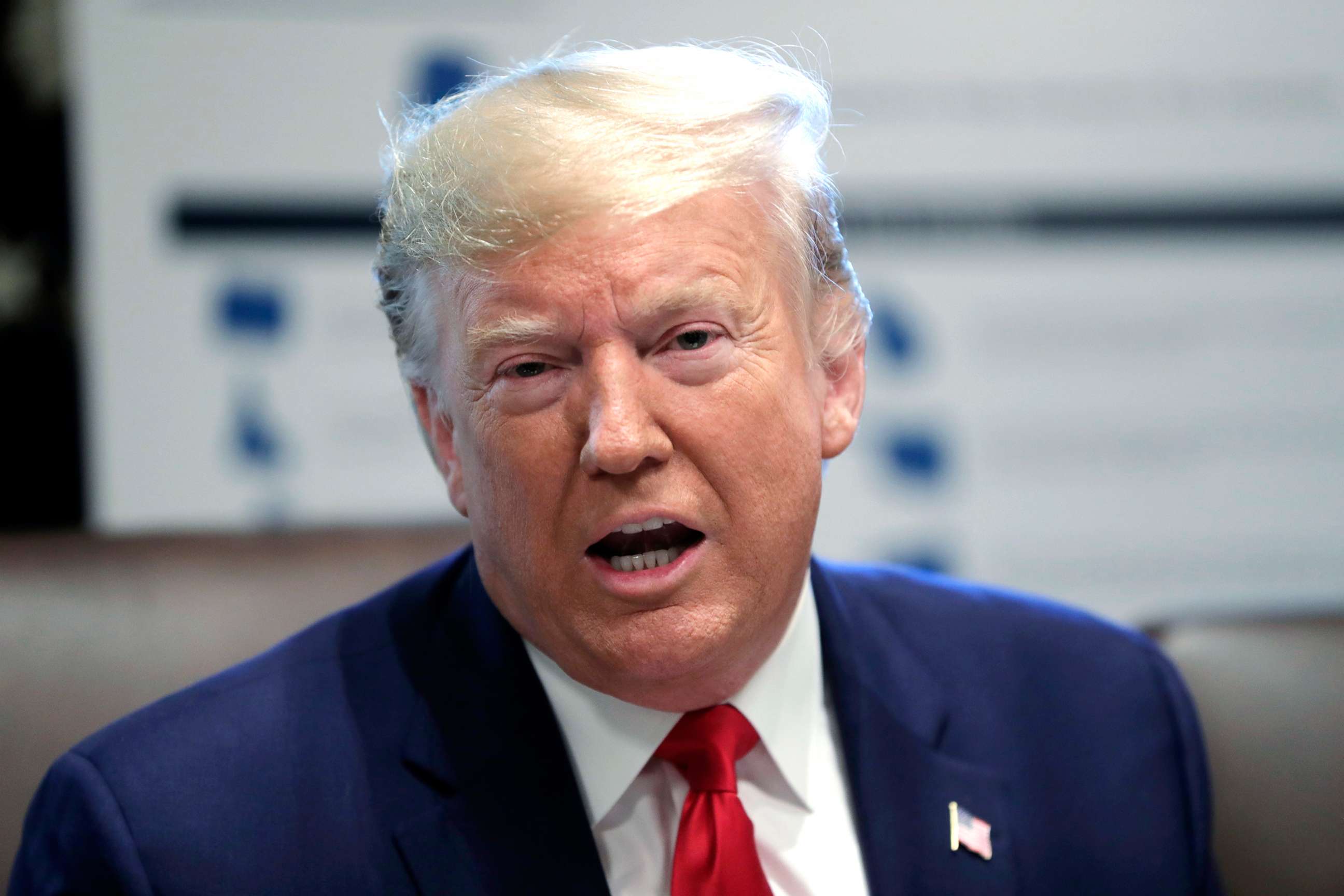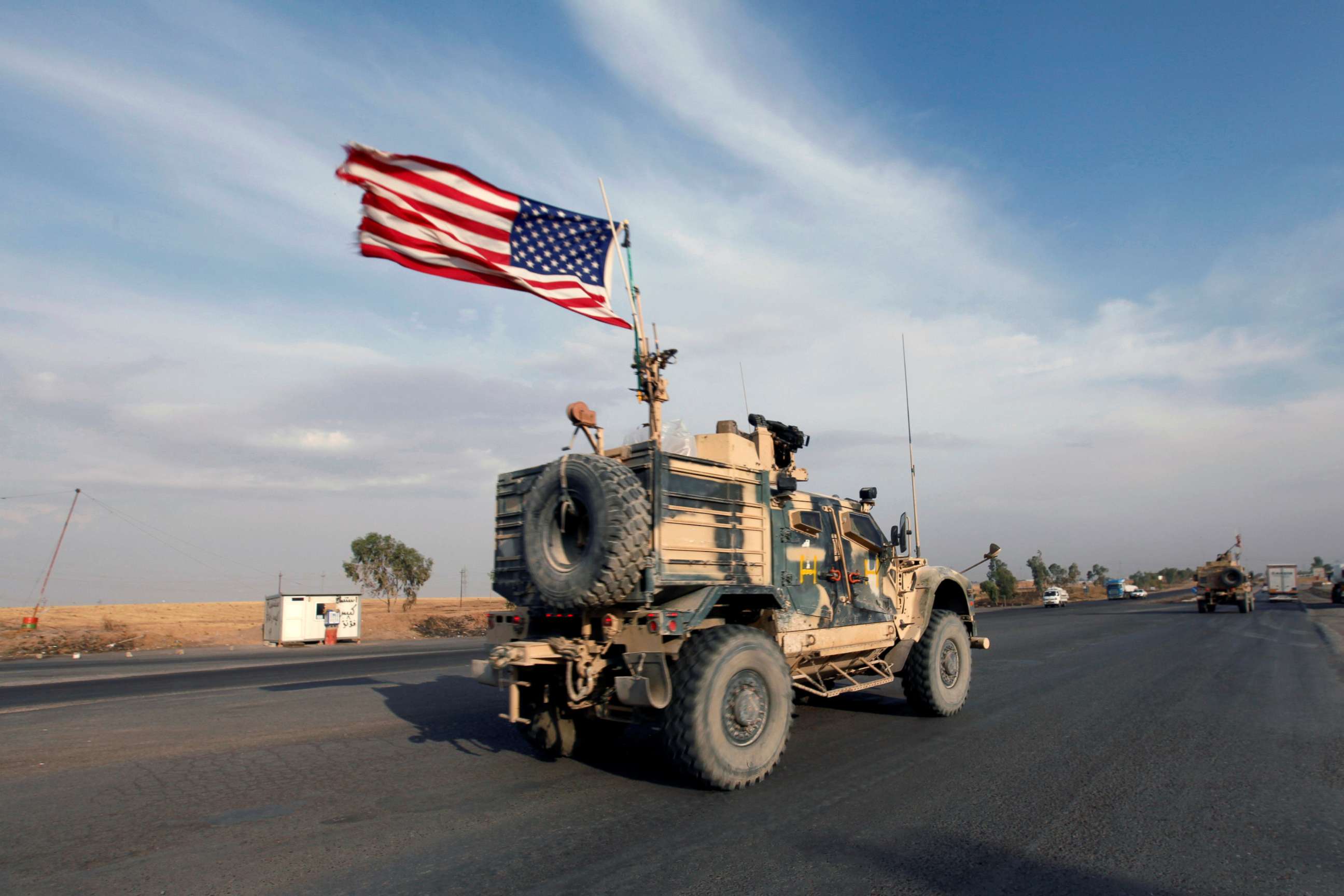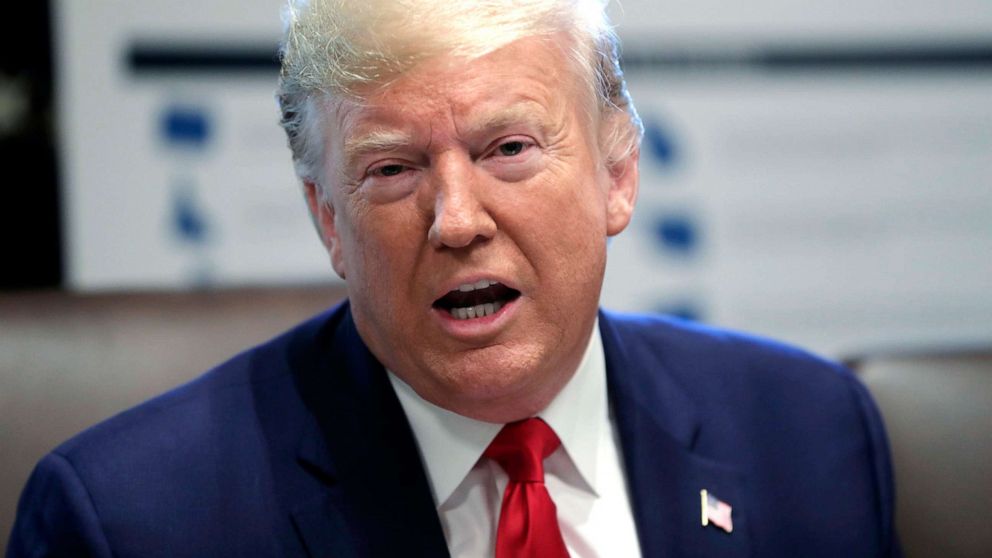Trump: US never agreed to protect Syrian Kurd allies 'for the rest of their lives'
President Donald Trump on Monday, again defending his decision to withdraw U.S. forces from northern Syria -- clearing the way for Turkish forces to attack U.S.-allied Syrian Kurds -- said, “We never agreed to protect the Kurds for the rest of their lives."
"We have a good relationship with the Kurds, but we never agreed to protect the Kurds. We have fought with them for three-and-a-half to four years. We never agreed to protect the Kurds for the rest of their lives," Trump said speaking to reporters at a White House Cabinet meeting for more than an hour Monday afternoon.
Trump has been fighting back against bipartisan criticism for his decision earlier this month to pull U.S. troops out of northeastern Syria, allowing Turkey to attack the U.S.-allied Syrian Kurds and seize control of the area.
“We’re bringing our soldiers back home and it’s going to probably work, but if it doesn’t work, you’re going to have people fighting like they’ve been fighting for 300 years, it’s very simple,” Trump said.
He added, "So far there hasn’t been one drop of blood shed during this entire period by an American soldier, nobody was killed, nobody cut their finger, no nothing, and they’re leaving."

Trump also told reporters that a negotiated "ceasefire" was holding despite some "skirmishes."
He continued defending his position Wednesday saying that this is decision is "much better for humanity. Where’s the agreement that we have to stay in Middle East for rest of civilization?" Trump said.

Trump's comments came as U.S. forces leaving Syria were headed to Iraq even though Trump had said he was bringing them "home."
He said Monday they would be going to "other parts" before coming back and when asked if he would support leaving a small number of troops in the region, Trump said that outside of securing oil that "there is no reason for it."
"I don't think it is necessary, other than that we secure the oil," Trump said. "It is in a little different section, but we need to secure the oil."
Trump added, "the other region where we have been asked by Israel and Jordan to leave a small number of troops is a totally different section of Syria, near Jordan and close to Israel."
The White House on Thursday announced that the U.S. and Turkey reached an agreement to "pause" Turkey's military operations in northern Syria for five days to allow Kurdish forces to withdraw from a buffer zone.
Secretary of State Mike Pompeo on Sunday defended the "ceasefire" that he and Vice President Mike Pence brokered with Turkey, which expired Tuesday, and responded to criticism from both Kurdish fighters and Republicans on the Hill, on ABC's "This Week."
Despite the deal having taken effect on Thursday, eyewitnesses reported that shelling continued through Thursday night and into Friday morning.
"The administration and the president's decision has undermined every single one of" America's interests in Syria "and I think has done so in ways that we're going to regret for a long time," Sen. Marco Rubio, R-Fla., said Thursday after the agreement was announced.
"We put out a joint statement which we think will really save lives. It's worked so far," Pompeo said on Sunday, adding that he had just received a report from his senior advisers that indicated that there is relatively little fighting still in Syria.
But since the release of a joint statement between the two NATO allies, critics from across the political spectrum have panned it as a capitulation to Turkey or a vague resolution that does not fully address the crisis now unfolding in northeastern Syria with the departure of U.S. troops.
When challenged by ABC News Chief Anchor George Stephanopoulos, saying, "The Turks said they got everything they wanted," When challenged by ABC News Chief Anchor George Stephanopoulos, Pompeo responded, "I was there. It sure didn't feel that way when we were negotiating."
"It was a hard-fought negotiation. It began before the vice president and I even arrived in Ankara," he said. "We achieved the outcome that President Trump sent us to achieve."
ABC News' Jordyn Phelps and Avery Miller contributed to this report.




